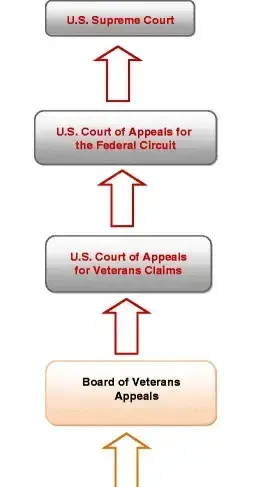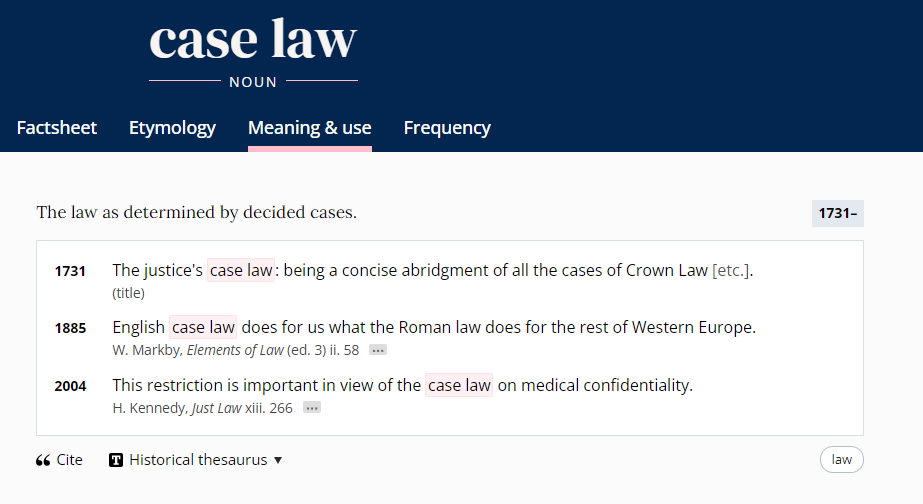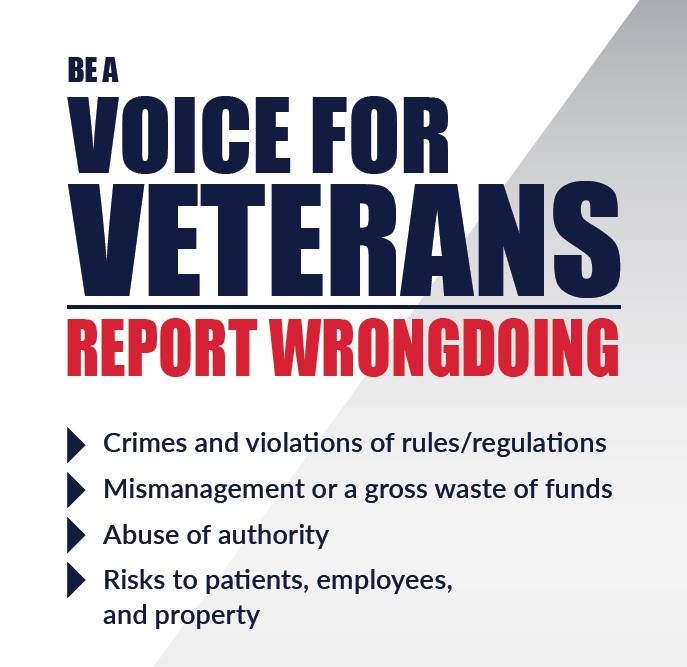- Home
- Veterans Law Info
- Case Law
Case Law (Veterans Law Cases)
Updated May 7, 2024
Case law refers to precedential (sets a precedent) opinions by, in the case of VA disability claims, federal (as opposed to state) courts of appeal, which are binding (must be followed) by lower courts and the Board of Appeals for Veterans Claims.
On this page ...
- Beaudette v. McDonough (Fed. Cir. 2024)
- Excerpts from Federal Circuit Opinion in Beaudette v. McDonough (2024)
- VA Had to Notify 400,000 Veterans and Families about their Right to Appeal Adverse Procedural Decisions
- Terminology: Writ, mandamus, writ of mandamus
- Levels of appeal for VA disability claims decisions
- Garner v. Tran (Vet. App. Jan. 26, 2021)
- Euzebio v. McDonough (Fed. Cir. Mar. 3, 2021)
- Francway v. Wilkie (Fed. Cir. 2019)
- Veterans Law: Historically Important Cases
PTSDexams.net is an educational site with no advertising and no affiliate links. Dr. Worthen conducts Independent Psychological Exams (IPE) with veterans, but that information is on his professional practice website.
Beaudette v. McDonough (Fed. Cir. 2024)
The U.S. Court of Appeals for the Federal Circuit (Federal Circuit), agreed with the U.S. Court of Appeals for Veterans Claims (Veterans Court) that when the Veterans Health Administration (VHA) renders an adverse decision about a procedural matter under the Program of Comprehensive Assistance for Family Caregivers (Caregiver Program), such decisions are subject to judicial review by the Board of Veterans' Appeals.
From the FedCircuitBlog:
Issue(s) Presented
1. “Whether the United States Court of Appeals for Veterans Claims (Veterans Court) erred in issuing a writ of mandamus that did not aid its exercise of actual or prospective jurisdiction, but rather expanded it.”
2. “Whether the Veterans Court erred when it held that claimants-appellees Jeremy and Maya Beaudette, acting on behalf of a class, were entitled to a writ of mandamus because they: 1) did not have adequate alternative means to obtain their desired relief; and 2) had a clear and indisputable right to the writ.”
Holding
1. “We conclude the Beaudettes and other similarly situated veterans and caregivers have an indisputable right to judicial review of Caregiver Program decisions that do not affect the furnishing of support or assistance. The Board has the authority under 38 C.F.R. § 20.104(c) to determine the types of appeals within its jurisdiction in light of the guidance above.”
2. “While the Beaudettes’ arguments challenge the VA’s interpretation of a statute, they are not challenging the VA’s rulemaking. Thus, the Beaudettes had no adequate alternative means to obtain the relief requested and the Veterans Court properly issued a writ of mandamus.”
Excerpts from Federal Circuit Opinion in Beaudette v. McDonough (2024)
Jeremy Beaudette served in the Marine Corps from 2002 to 2012, including five combat tours in Iraq and Afghanistan.
Mr. Beaudette suffered multiple concussions, resulting in traumatic brain injury [TBI] and rendering him legally blind. He was medically discharged, and the VA rated him 100% disabled.
Mr. Beaudette and his wife Maya Beaudette (collectively, the Beaudettes) applied for Caregiver Program benefits in March 2013. The VA found them eligible based on Mr. Beaudette’s inability to perform activities of daily living and his substantial need for supervision and protection. ...
In October 2017, the VA initiated its regular reassessment of Mr. Beaudette. Due to Mr. Beaudette’s ongoing recovery from major surgeries, the Beaudettes requested a delay in the reassessment until he could physically participate.
The VA denied the request and proceeded to reassess his status based solely on his medical records.
Here, the Beaudettes were deemed ineligible partially because Mr. Beaudette was not available for an in-person evaluation. This is a procedural issue related to Caregiver Program eligibility and is not a medical determination.
...
Thus, the Beaudettes had no adequate alternative means to obtain the relief requested and the Veterans Court properly issued a writ of mandamus. ... we affirm the Veterans Court’s grant of the petition for a writ of mandamus. (emphasis added, citations omitted)
VA Had to Notify 400,000 Veterans and Families about their Right to Appeal Adverse Procedural Decisions
In 2021 the Veterans Court ordered VA to notify over 400,000 claimants of their right to appeal adverse Caregiver Program decisions to the Board.
Although VA appealed the granting of a writ of mandamus, the agency did not appeal the order to give notice and they proceeded to notify the vets and family members
As of 11 Dec 2023, the Board of Veterans Appeals had issued over 1,000 decisions on appeals of Caregiver Program decisions.
See also this well-written article on Military.com:
Court Rules that Veterans' Caregivers Can Appeal VA Eligibility Decisions
Terminology: Writ, mandamus, writ of mandamus
From the Cornell Law School's Legal Information Institute (LII):
"A writ is an order issued by a legal authority with administrative or judicial powers, typically a court." [https://www.law.cornell.edu/wex/writ]
"A writ of mandamus is an order from a court to an inferior government official ordering the government official to properly fulfill their official duties or correct an abuse of discretion." [https://www.law.cornell.edu/wex/mandamus]
---
From the Oxford English Dictionary, 3rd ed. (September 2023):
modern meaning of writ of mandamus: "a court order or writ directing an inferior court, a corporation, official, etc., to perform a public or statutory duty, esp. so as to remedy a legal defect" [https://www.oed.com/dictionary/mandamus_n]
mandamus - "we command" (classical Latin, mandāmus)
Levels of appeal for VA disability claims decisions

The Veterans Benefits Administration (VBA), a component of the Department of Veterans Affairs, is the agency of original jurisdiction and makes the initial decision about a veteran's disability claim.
If a veteran disagrees with a VBA decision, they can appeal for higher-level review (HLR) conducted by a senior VBA official who reviews the claim de novo (anew, afresh), as if no decision had yet been made about the claim.
Either instead of an HLR or after an unfavorable HLR decision, a veteran can appeal a claim decision to the Board of Veterans' Appeals (BVA), an administrative tribunal within the Department of Veterans Affairs.
A veterans law judge, assisted by BVA legal staff, reviews the claim and the VBA decision, and, if requested by the veteran, holds a hearing. Veterans may represent themselves, or request representation by a veterans service officer, VA-accredited claims agent, or veterans law attorney.
A veteran may appeal a Board of Veterans' Appeals (BVA) decision to the U.S. Court of Appeals for Veterans Claims, often called the Veterans Court. Whereas BVA is an administrative tribunal that is part of the executive branch (the Department of Veterans Affairs), the Veterans Court is part of the judicial branch of government—it is an independent federal court.
Adverse decisions by the Veterans Court may be appealed to the U.S. Court of Appeals for the Federal Circuit, but only "with respect to the validity of a decision of the Court on a rule of law or of any statute or regulation ... or any interpretation thereof (other than a determination as to a factual matter) that was relied on by the Court in making the decision" (emphasis added). 38 U.S.C. § 7292
On rare occasions, the U.S. Supreme Court at its sole discretion may accept a petition for a writ of certiorari and review a Federal Circuit decision.
From USCourts.gov (slightly edited for clarity):
The Supreme Court has appellate jurisdiction (the Court can hear the case on appeal) on almost any case that involves a point of constitutional or federal law. ... When exercising its appellate jurisdiction, the Court, with a few exceptions, does not have to hear a case. ... In a petition for a writ of certiorari, a party asks the Court to review its case. The Supreme Court agrees to hear less than 150 of the more than 7,000 cases that it is asked to review each year.
Source: https://www.uscourts.gov/about-federal-courts/educational-resources/about-educational-outreach/activity-resources/about
Garner v. Tran (Vet. App. Jan. 26, 2021)
Excerpts from the Court's Opinion
Veteran Ronald V. Garner appeals through counsel an August 31, 2018, Board of Veterans' Appeals (Board) decision denying service connection for obstructive sleep apnea (OSA), including as secondary to service-connected major depressive disorder (MDD).
This matter was referred to a panel of the Court, with oral argument, to address what is necessary to reasonably raise the issue of obesity as an intermediate step toward service connection in the causal chain between the veteran's service-connected disabilities and the claimed disability, OSA.
This is an issue of first impression, and today we provide guidance to the Board for adjudication of these types of claims.
The Court concludes that the record in this case does not reasonably raise the issue of obesity as an intermediate step toward secondary service connection.
Nevertheless, because the Board relied on examinations that were inadequate to allow the Board to make a fully informed decision as to any relationship between the OSA and the veteran's service-connected MDD, we will set aside the August 2018 Board decision and remand the matter for further development and readjudication consistent with this decision.
Mr. Garner argues that the Board erred in failing to consider the reasonably raised theory that his service-connected MDD, right ankle, or left knee conditions caused or aggravated his obesity, which in turn caused or aggravated his OSA.
In January 2017, VA's Office of General Counsel issued a precedential opinion addressing the status of obesity for the purposes of establishing entitlement to service connection. VA. Gen. Coun. Prec. 1-2017 (Jan. 6, 2017) ....
The General Counsel noted that obesity per se is not a disease or injury, and therefore, may not be service connected on a direct basis.
However, the General Counsel determined that "obesity may be an 'intermediate step' between a service-connected disability and a current disability that may be service connected on a secondary basis under 38 C.F.R. § 3.310(a)."
In Walsh, we held that the General Counsel opinion requires the Board to consider aggravation in addition to causation in the context of claims where a theory of secondary service connection, with obesity as an intermediate step, is explicitly raised by the veteran or reasonably raised by the record.
Taken together, our holding in Walsh and the General Counsel's opinion illustrate the mechanism by which obesity as an intermediate step could result in secondary service connection; however, they do not provide guidance regarding what factual circumstances would give rise to claims for secondary service connection via this theory.
Although the Court has not addressed that issue in a precedential decision, a survey of single-judge decisions reveals factors that the Court has considered relevant to this determination.
Review of a broad array of factual circumstances here will help to illuminate the type and quality of evidence that may be sufficient to reasonably raise a theory of secondary service connection via obesity as an intermediate step. ...
To that end, we note that considerations that could give rise to a reasonably raised theory of secondary service connection with obesity as an intermediate step may include, but are not limited to:
- mobility limitations or reduced physical activity as a result of a service-connected physical disability (in particular, orthopedic conditions or chronically painful conditions);
- reduced physical activity or inability to follow a course of exercise or diet as a result of service-connected mental disability;
- side effects of medication (e.g., weight gain), where the medication is prescribed for a service-connected disability;
- treatise evidence suggesting a connection between all or some combination of obesity, service-connected disability, and the claimed condition;
- lay statements by a veteran attributing weight gain or obesity to the service-connected disability; and
- statements by treating physicians or medical examiners attributing weight gain or obesity to the service-connected disability.
We do not identify these factors in an attempt to limit any reasonably raised theory of obesity as an intermediate step to a circumscribed set of circumstances.
Rather, we note that these considerations encompass a diverse array of factual situations, but share a critical commonality: in each case, there is some evidence in the record which draws an association or suggests a relationship between the veteran's obesity, or weight gain resulting in obesity, and a service-connected condition.
We hold that, where, as here, the record reflects only incidental references to the veteran's weight or weight gain, the evidence of record is insufficient to reasonably raise the theory of secondary service connection via obesity as an intermediate step.
B. Adequacy of the September 2015 and November 2017 VA Examinations as to the Relationship between MDD and OSA
...
2. Adequacy of VA Medical Examination
When the Secretary undertakes to provide a veteran with a VA medical examination or obtain an opinion, he must ensure that the examination or opinion provided is adequate.
A VA medical examination or opinion is adequate:
- "where it is based upon consideration of the veteran's prior medical history and examinations," Stefl v. Nicholson, 21 Vet.App. 120, 123 (2007);
- "describes the disability . . . in sufficient detail so that the Board's 'evaluation of the claimed disability will be a fully informed one,'" and
- "sufficiently inform[s] the Board of a medical expert's judgment on a medical question and the essential rationale for that opinion".
See also:
- Acevedo v. Shinseki, 25 Vet.App. 286, 293 (2012) ("[A]n adequate medical report must rest on correct facts and reasoned medical judgment so as [to] inform the Board on a medical question and facilitate the Board's consideration and weighing of the report against any contrary reports.");
- Nieves-Rodriguez v. Peake, 22 Vet.App. 295, 301 (2008) ("[A] medical examination report must contain not only clear conclusions with supporting data, but also a reasoned medical explanation connecting the two.").
- Of particular relevance here, a medical examination or opinion that fails to address whether a service-connected disability aggravated the claimed disability is inadequate to inform the Board on the issue of secondary service connection. El-Amin v. Shinseki, 26 Vet.App. 136, 140 (2013).
The Board did not expressly discuss its reasons for finding the VA examinations adequate. Rather, the Board, in relying on these examinations, implicitly found that they were adequate. In other words, the Court is able to discern the Board's reasons from its discussion of the relative probative value. The Court disagrees with the Secretary that the Board's reliance on the 2015 and 2017 examinations was appropriate.
These opinions provide no insight into the relevant inquiry, which is whether service-connected MDD aggravated any functional impairment associated with the veteran's OSA. Indeed, the Board's summary reveals, and the Secretary concedes, that the September 2015 opinion fails to address aggravation at all ....
Therefore, the Court concludes that the Board clearly erred in finding the VA examinations adequate to adjudicate the claim. Consequently, the Court holds that remand is warranted for a VA examiner to address whether the veteran's service-connected MDD caused a functional increase in the severity of his OSA.
See also Carmack, Freda. Court Outlines Requirements for Obesity as an Intermediate Step in Secondary Service Connection Appeals. Veterans Law Journal, 2021, vol. 1, 23–25.
 Vassily Kandinsky (1866–1944), Untitled (1944)
Vassily Kandinsky (1866–1944), Untitled (1944)Euzebio v. McDonough (Fed. Cir. Mar. 3, 2021)
The excellent Fed Circuit Blog recently published a case summary for Euzebio v. McDonough, a veterans case that considered the standard for what materials should be deemed constructively before the Board of Veterans’ Appeals.
The Federal Circuit found that the Veterans Court applied an erroneous legal standard by requiring a “direct relationship” between the evidence and the claim before the Board.
The court articulated the standard for the Board’s constructive possession as “relevance and reasonableness.”
According to the Federal Circuit Court: "Because the Veterans Court applied an erroneous legal standard when it concluded the Board did not have constructive possession of the NAS Update 2014 [National Academy of Sciences, Veterans and Agent Orange: Update 2014], we vacate and remand."
The Veterans Law Journal, published by the Court of Appeals for Veterans Claims Bar Association, also has an informative article on the case:
Berner, Jillian. Federal Circuit Clarifies Extent of Constructive Possession Doctrine, Holds that NAS Reports are “Relevant” to Agent Orange Claims. Veterans Law Journal 2021, vol. 1, 10–12.
Case citation: Euzebio v. McDonough, No. 2020-1072 (Fed. Cir. Mar. 3, 2021).
Zachary Stolz of Chisholm Chisholm & Kilpatrick (CCK) argued for the veteran before the Federal Circuit Court.
Francway v. Wilkie (Fed. Cir. 2019)
This precedential, en banc Federal Circuit decision clarified the VA's obligation to demonstrate a medical examiner's competence, if a veteran raises the competency issue before the Board of Veterans Appeals.
The Court's opinion has three implications for VA examiners. [Read more ...]
--
From the Oxford English Dictionary, 3rd ed. (July 2023):
en banc - With all (or a majority or quorum) of the judges of a court present; before or by the full bench. A sitting en banc is typically held by an appeal court in order to review decisions made by a panel of its members. [https://www.oed.com/dictionary/en-banc_adv]
Veterans Law: Historically Important Cases
This section lists historically important court opinions in veterans law.
Gilbert v. Derwinski, 1 Vet. App. 49 (1990)
Gilbert v. Derwinski (1990) is a Court of Appeals for Veterans Claims (CAVC) case decided in 1990, soon after the Court was created by Congress. The case is important for two reasons. [Read more ....]
Subscribe to receive new articles and other updates
What Do You Think?
I value your feedback!
If you would like to comment, ask questions, or offer suggestions about this page, please feel free to do so. Of course, keep it clean and courteous.
You can leave an anonymous comment if you wish—just type a pseudonym in the "Name" field.
If you want to receive an email when someone replies to your comment, click the Google Sign-in icon on the lower right of the comment box to use Google Sign-in. (Your email remains private.)
↓ Please comment below! ↓



